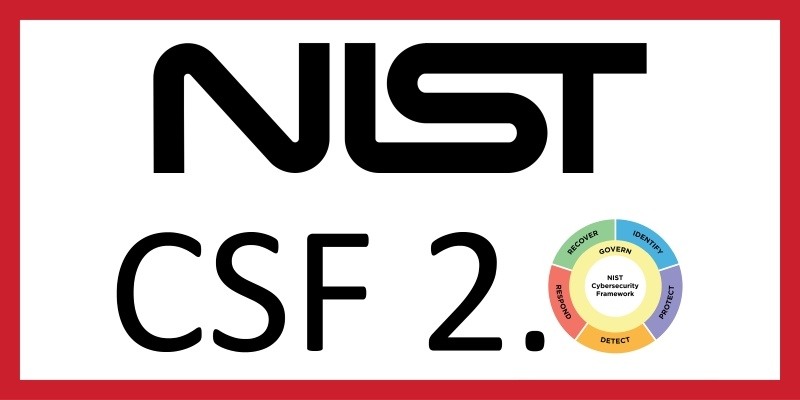Corporate in-house counsel face increasing challenges in managing data collections and digital forensics. Leveraging the expertise of an experienced outside vendor can be a game-changer.
Why Corporate In-House Counsel Should Utilize an Experienced Outside Vendor for Data Collection and Digital Forensics
In today’s complex and fast-evolving legal landscape, corporate in-house counsel are under increasing pressure to manage and protect data effectively. From regulatory compliance to litigation, the need to gather, review, and preserve data in a legally defensible manner is paramount. However, the growing volume and complexity of data can make handling data collections and digital forensics internally a daunting task. This is where experienced outside vendors come in. Leveraging the expertise of a trusted third-party service provider can significantly enhance the efficiency, security, and compliance of data management efforts.
Here’s why corporate in-house counsel should consider outsourcing data collection and digital forensics to an experienced vendor:
1. Expertise in Managing Complex Data Collections
Data collection, especially in the context of litigation or regulatory investigations, is not as simple as hitting “download” or “copy.” In-house teams often face challenges like dealing with large volumes of unstructured data, ensuring compliance with e-discovery laws, and maintaining the integrity of evidence for court proceedings.
Experienced outside vendors specialize in these complex processes and can provide invaluable expertise in:
Comprehensive Data Identification & Collection: Vendors are equipped to identify relevant data across various platforms, such as email servers, cloud storage, smartphones, and social media. They have the knowledge and tools to ensure that no critical data is overlooked and that everything is collected in compliance with legal standards.
Cross-Platform Expertise: With the increasing variety of data sources—cloud storage, mobile devices, collaboration tools like Slack or Microsoft Teams, and more—vendors can manage data collections across these diverse environments. They understand the specific challenges involved in collecting data from each platform and have the tools to manage them efficiently.
Preserving Data Integrity: When collecting data for legal purposes, maintaining the chain of custody is critical. Experienced vendors follow industry best practices to ensure that data is collected, stored, and transferred without tampering, which is vital for upholding its admissibility in court.
2. Advanced Tools and Technologies
Handling digital forensics and data collection requires specialized tools and technologies that may not be readily available in-house. Investing in such tools can be costly, and the technology can quickly become obsolete. Outside vendors, however, have access to cutting-edge technologies and can offer the following benefits:
AI and Machine Learning: Many experienced vendors use artificial intelligence (AI) and machine learning (ML) algorithms to streamline data collection, review, and analysis. These technologies can automate repetitive tasks, identify patterns in data, and reduce the time spent on manual review.
Cloud Forensics: With businesses increasingly shifting to cloud-based platforms, the ability to collect and analyze data from cloud environments has become essential. External vendors are equipped with the tools to manage cloud forensics and can ensure that all data is captured accurately and efficiently from cloud storage platforms and services.
Automation of Routine Tasks: From data processing to initial document review, many vendors use automated systems that can perform tasks at a much higher speed and accuracy than in-house teams. This not only accelerates the collection process but also reduces the chances of human error.
3. Cost-Effectiveness
While outsourcing data collection and digital forensics may seem like an additional cost, in the long run, it can actually save corporate in-house counsel money. Here's how:
Reducing Internal Resource Drain: By outsourcing, in-house teams can focus on higher-value tasks like legal strategy, risk management, and advising business units, rather than spending time on complex data collection and forensic analysis. This helps optimize internal resources and prevents overburdening in-house staff.
Avoiding Expensive Mistakes: Data handling is a complex process, and errors made during collection or analysis could be costly. Mishandling evidence could result in sanctions, unfavorable court rulings, or the loss of crucial data. Experienced vendors mitigate these risks by adhering to best practices, reducing the chances of mistakes that could lead to expensive consequences.
No Need for Expensive Technology Investments: Maintaining state-of-the-art digital forensics tools and hiring specialists to operate them can be expensive. By outsourcing, corporate counsel can avoid these costs and leverage the vendor’s existing infrastructure and expertise without the need to make substantial investments in new tools or training.
4. Enhanced Data Security and Compliance
Security and compliance are critical when handling sensitive corporate data. With the increasing complexity of privacy regulations such as GDPR, CCPA, and HIPAA, in-house teams must be diligent in ensuring that data is collected and stored in a legally compliant and secure manner.
Data Privacy Compliance: An experienced vendor will stay updated on the latest regulatory changes and ensure that data collection and forensic efforts comply with relevant laws, including those governing cross-border data transfers and the protection of personal data. This can help mitigate the risk of fines or penalties for non-compliance.
Secure Data Handling: Vendors typically implement robust security measures such as end-to-end encryption, secure data transfer protocols, and access controls to protect sensitive data throughout the collection, analysis, and storage phases. This is essential for avoiding data breaches or leaks that could have severe legal and reputational consequences.
Confidentiality Assurance: Many vendors sign confidentiality agreements and provide detailed reports of their work to ensure that all data is handled in a way that preserves the company’s legal interests. These agreements offer an added layer of protection to ensure that no confidential information is mishandled or exposed.
5. Timeliness and Scalability
In the fast-moving world of litigation and regulatory investigations, time is often of the essence. Whether you're under a tight deadline for e-discovery or need to respond to a regulatory inquiry, having the right external partner can make all the difference.
Faster Turnaround: Experienced vendors can leverage their specialized tools, skills, and resources to accelerate the data collection and forensic analysis process. Their teams are well-equipped to handle even the most time-sensitive cases efficiently.
Scalability for Larger Projects: As companies scale, so too does the volume and complexity of data. An outside vendor can handle large-scale projects without the need for in-house counsel to hire additional staff or invest in new infrastructure. Whether it’s a massive internal investigation or an unexpected litigation matter, vendors can quickly scale their efforts to meet the need.
6. Objective Third-Party Perspective
Working with an outside vendor provides a fresh, unbiased perspective. Internal teams may have preconceived notions or biases related to the data or a specific case. An experienced vendor, on the other hand, approaches the situation with objectivity, offering an impartial analysis of the data and identifying issues that may have been overlooked internally.
Conclusion
Data collection and digital forensics are critical components of any legal strategy, especially in an age where data is growing exponentially. Corporate in-house counsel who attempt to manage these complex tasks internally often face challenges related to expertise, cost, security, and compliance. By partnering with an experienced outside vendor, companies can mitigate risks, ensure that their data collection efforts are efficient and legally defensible, and leverage the latest tools and technologies without the significant investment.
In today’s legal environment, outsourcing to trusted vendors is not just a smart choice—it's an essential strategy for corporate counsel looking to streamline their operations, enhance security, and stay ahead of the curve.




